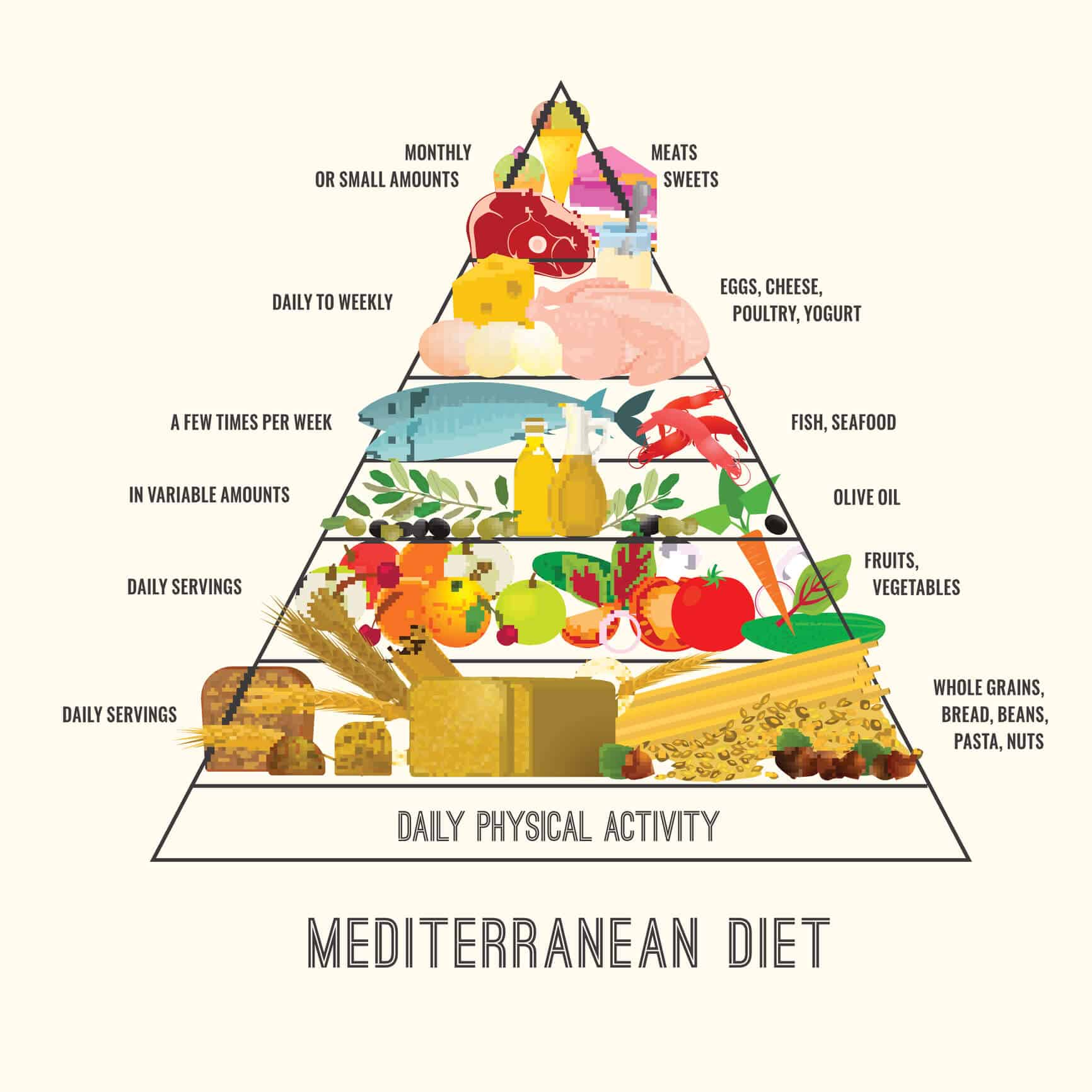The Mediterranean Diet’s Affect on Cardiovascular Health

A recent study1 using STABILITY trial data from 39 countries showed that just eating some healthy foods recommended by the Mediterranean Diet was enough to have a major benefit. Specifically, in patients with stable coronary heart disease who reported even a medium proportion of Mediterranean-type foods, researchers found a significant beneficial reduction in risk for cardiovascular death, non-fatal myocardial infarction, and non-fatal stroke. The study also showed that a simple food frequency questionnaire was sensitive enough to discriminate heart healthy from not heart healthy foods. Moreover, the American Heart Association2 identifies fatty fish in the Mediterranean diet as a major source of omega-3 fatty acids known to have major benefits such as decreasing the risk of arrhythmias and enhancing heart health, slowing the growth of atherosclerotic plaque, and lowering triglyceride levels. A recent review confirmed that the Mediterranean diet, high in omega-3 fatty acids, may also reduce the risk of some cancers.3
Do you frequently find yourself reminding patients with hypertension, who are on anti-hypertensive therapy, that lifestyle modification including healthful eating and weight loss are essential parts of blood pressure control?4 The most recent systematic review and meta-analysis4 compared four diets in hypertension randomized controlled trials and reported that the Mediterranean diet had a significant effect on diastolic but not systolic blood pressure reduction. Also, being overweight lead to less blood pressure reduction, emphasizing the negative role of overweight and the need for healthful eating in this population.
Taken together, the Mediterranean diet has profound effects. Healthful eating has a central role in prevention and self-management. More studies must be conducted in diverse patient groups; longer-term studies are also needed.4
Things to consider:
- Eat as many Mediterranean-type foods each day as possible, even if you cannot be strictly adherent in all your food choices.
- Teach the Mediterranean diet to those who are at risk of cardiovascular disease, emphasizing fresh and varied food choices and the added benefits that omega-3 fatty acids provide.
- Emphasize positive changes patients make toward the Mediterranean-type food choices.
- Use a simple food frequency questionnaire in your practice and provide immediate feedback to the patient. Emphasize positive changes patients make toward the Mediterranean-type food choices.
- Prescribe the Mediterranean diet (with a salt restriction as necessary) to patients with hypertension, as a lifestyle modification whether or not they are taking anti-hypertensive medication.
- Stewart RA, Wallentin L, Benatar J, Danchin N, Hagström E, Held C, et al. Dietary patterns and the risk of major adverse cardiovascular events in a global study of high-risk patients with stable coronary heart disease. Eur Heart J. 2016;37:1993-2001.
- Fish and Omega-3 Fatty Acids http://www.heart.org/HEARTORG /HealthyLiving/HealthyEating/HealthyDietGoals/Fish-and-Omega-3-Fatty-Acids_UCM_303248_Article.jsp#.WJEKWFMrKUk
- Rosato V, Guercio V, Bosetti C., Negri E, Serraino D, Giacosa A, et al. Mediterranean diet and colorectal cancer risk: a pooled analysis of three Italian case–control studies. Br J Cancer. 2016;115:862-865.
- Gay HC, Rao SG, Vaccarino V, Ali MK. Effects of different dietary interventions on blood pressure, Systematic review and meta-analysis of randomized controlled trials. Hypertens. 2016;67:DOI: 10.1161/HYPERTENSIONAHA.115.06853
